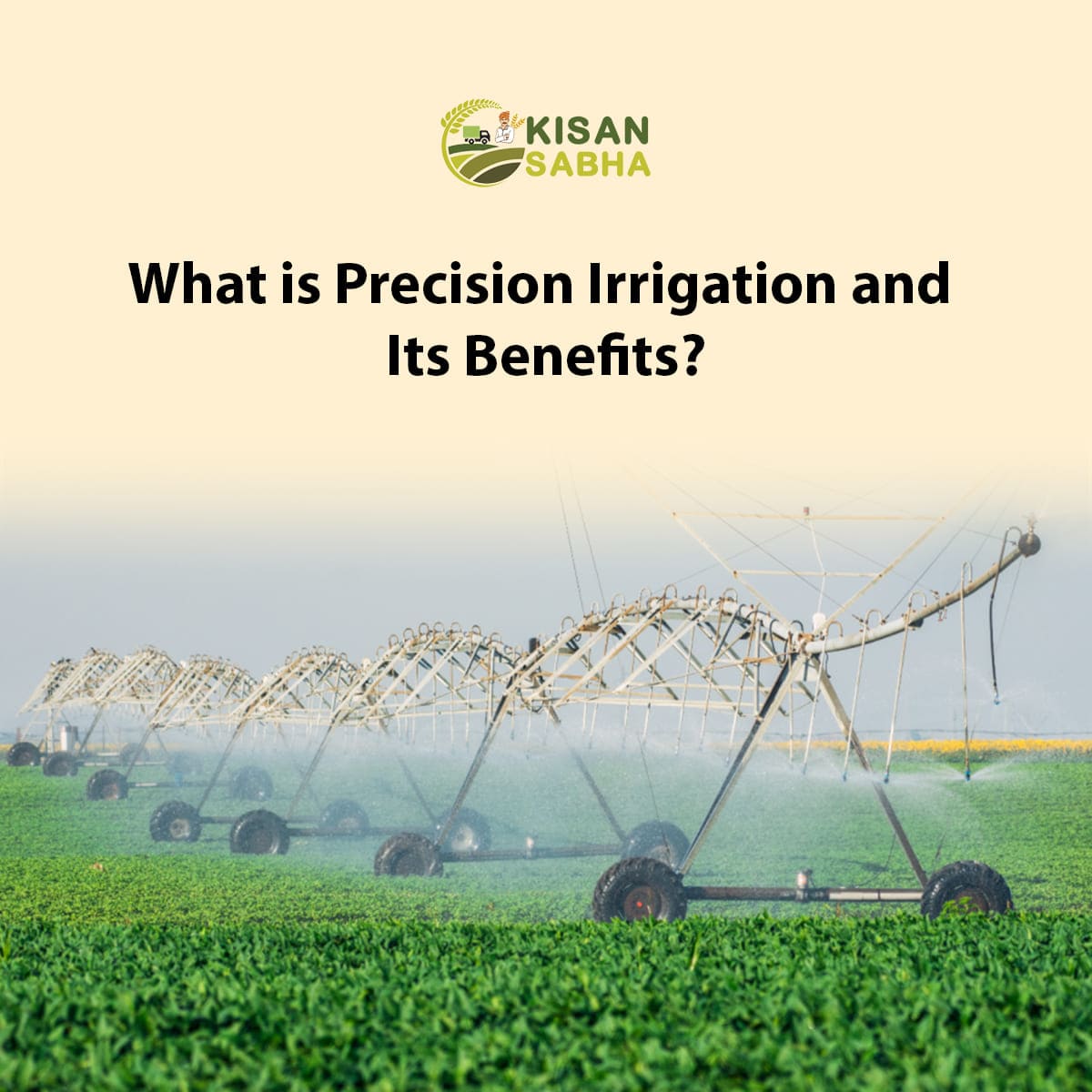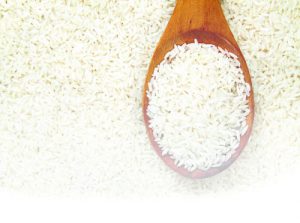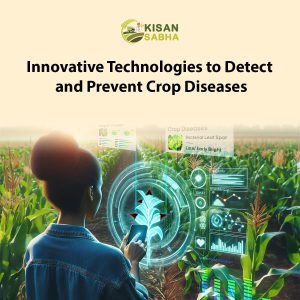The agricultural landscape constantly evolves, integrating innovative technologies to address modern farming challenges. Among these inventions, precision irrigation stands tall as a game-changer, revolutionizing crop production worldwide. Rooted in cutting-edge hardware, software, and IoT components, precision irrigation brings unprecedented accuracy and intelligence to water distribution, nurturing prosperous yields while promoting sustainable agriculture. This essay highlights the significance of precision irrigation, revealing its multifaceted contributions to contemporary agribusiness.
Water scarcity poses daunting threats to agricultural communities, intensifying competition for finite supplies. As populations expand, arable land dwindles, pushing farmers to squeeze maximal output from shrinking parcels. Paralleling these challenges, environmental consciousness grows stronger, urging stakeholders to embrace ecological responsibility. Within this context, precision irrigation emerges as a powerful solution capable of harmonizing profitability and sustainability objectives.
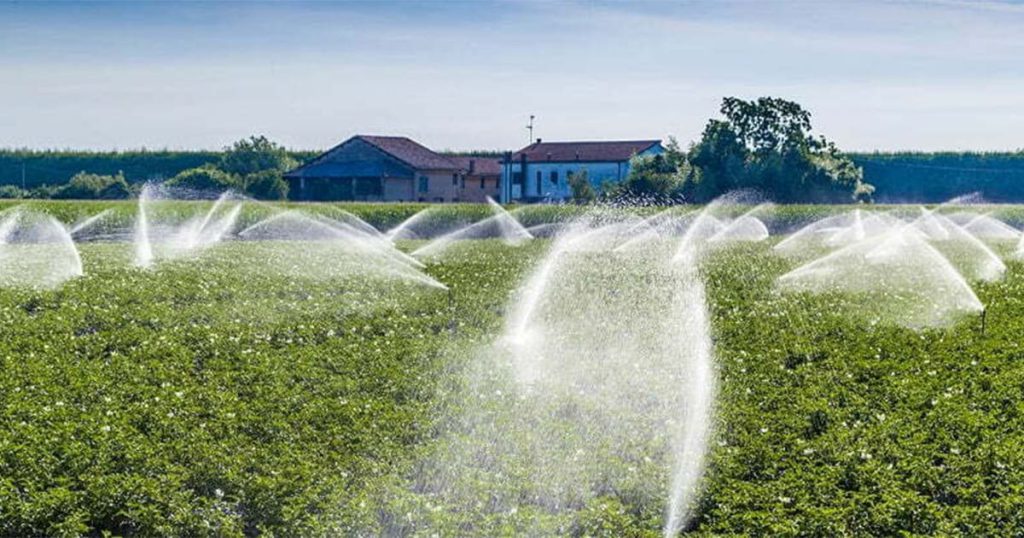
Defining Precision Irrigation:
Precision irrigation refers to managed water applications targeting crops’ specific hydrological needs. Rather than indiscriminate flooding or spraying, precision irrigation employs sophisticated sensors, valves, and actuators, distributing measured quantities of moisture with remarkable precision. Backed by intelligent algorithms and big data analytics, precision irrigation translates raw sensor readings into insightful decisions, elevating farm management proficiency.
Benefits of Precision Irrigation:
Water Conservation
Precision irrigation systems deliver water directly to the plant’s roots in controlled amounts, minimizing water loss due to evaporation and runoff. This targeted approach significantly reduces water wastage and conserves this precious resource.
Improved Crop Health and Yield
By providing crops with the right amount of water precisely when they need it, precision irrigation promotes healthier root development, minimizes stress, and maximizes crop yields. This optimized water supply ensures that plants receive the necessary hydration for optimal growth and productivity.
Reduction in Fertilizer Usage
Precision irrigation systems allow farmers to apply fertilizers precisely to targeted areas, ensuring that nutrients reach the plants efficiently. This reduces fertilizer runoff, which can contaminate water bodies, and minimizes the overall amount of fertilizer needed. Precision irrigation helps prevent fertilizer wastage, saving farmers money and protecting the environment.
Energy Efficiency and Cost Savings
Precision irrigation systems require less energy for pumping and distribution compared to traditional irrigation methods. By using real-time data and automation, farmers can optimize irrigation schedules, reducing energy consumption and operational costs.
Enhanced Crop Uniformity
Precision irrigation ensures uniform water distribution across the field, resulting in consistent crop growth and development. This uniformity helps minimize variations in crop quality and yield, leading to more predictable and profitable harvests.
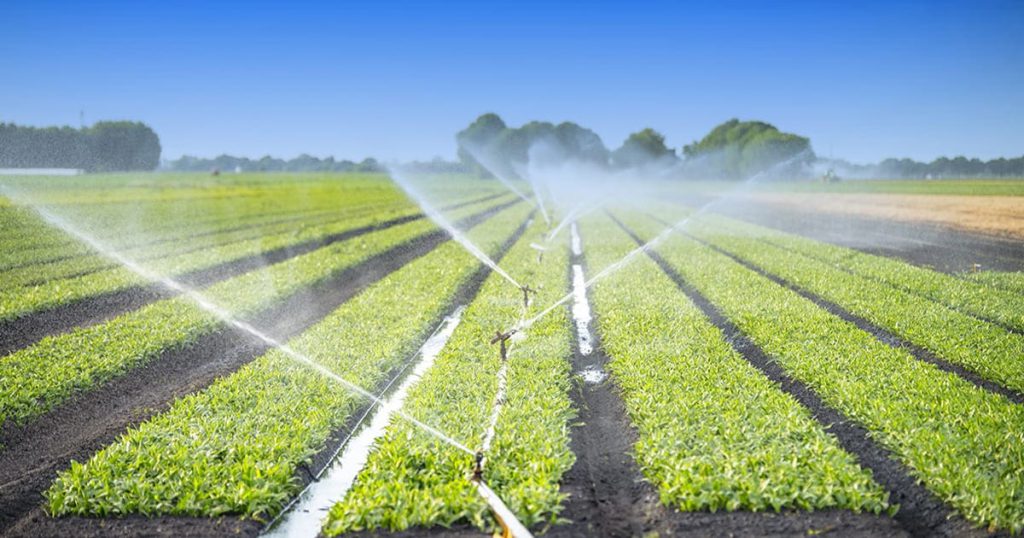
Reduced Weed Growth
Precision irrigation systems deliver water directly to the plant’s root zone, minimizing moisture availability to weed seeds and reducing weed growth. This targeted approach reduces the competition between crops and weeds, simplifying weed management and reducing the need for herbicides.
Soil Health and Erosion Control
Precision irrigation helps maintain soil health by preventing overwatering, which can lead to soil erosion and nutrient leaching. By supplying water only where it is needed, precision irrigation minimizes soil compaction and nutrient loss, preserving the long-term fertility and structure of the soil.
Environmental Sustainability
Precision irrigation contributes to sustainable farming practices by conserving water resources, reducing fertilizer and chemical runoff, and minimizing energy consumption. By adopting precision irrigation, farmers can minimize their environmental impact and contribute to a more sustainable agricultural system.
Also Read:- Vertical Farming in India: Technology, Benefits & Best Crops
Barriers to Precision Irrigation Adoption:
Despite overwhelming endorsements, several barriers obstruct universal acceptance, notably:
Initial Investments:
Capital-intensive startup costs deter modest-scale farms from transitioning to precision irrigation. Though lifecycle economics favorably compare with conventional methods, steep frontend commitments discourage early adoption.
Technical Competence:
Precision irrigation presupposes sound IT literacy, alienating technophobic demographic groups. Despite intuitive designs, persistent learning curves loom, impeding swift comprehension.
System Integration:
Interoperability deficiencies frustrate seamless deployments, rendering legacy installations incompatible with novel add-ons. Standardization efforts strive to bridge disparities, however fragmented markets persist.
Future Perspectives:
Artificial Intelligence:
AI promises to democratize precision irrigation, bringing scalable autonomy to bear on complex problems. Machine learning algorithms ingest vast datasets, distilling wisdom from apparent chaos, and illuminating latent patterns imperceptible to humans alone. Future iterations envision cognitive machines autonomously diagnosing malfunctions, prescribing remediation, and executing self-maintenance.
Internet of Things:
IoT ecosystems mature exponentially, spawning ubiquitous sensing paradigms. Low-power wireless mesh networks penetrate previously unmonitored domains, captivating researchers and entrepreneurs alike. Granular observations portend revolutionary breakthroughs, heralding unprecedented resolution and scope.
Conclusion:
Precision irrigation epitomizes contemporary agriculture innovation, encapsulating pioneering principles defining tomorrow’s foodscape. Drawing inspiration from decades of cumulative progress, engineers synthesize hybridized technologies melding computation, mechanics, and biology, constructing dynamic closed-loop systems resonating with nature’s harmony. Surmounting lingering challenges demands sustained investment, training, and cooperation, cementing precision irrigation’s centrality within Agtech discussions. Looking ahead, visionaries foresee a verdant panorama punctuated by flourishing ecosystems, abundant harvests, and enduring prosperity.


